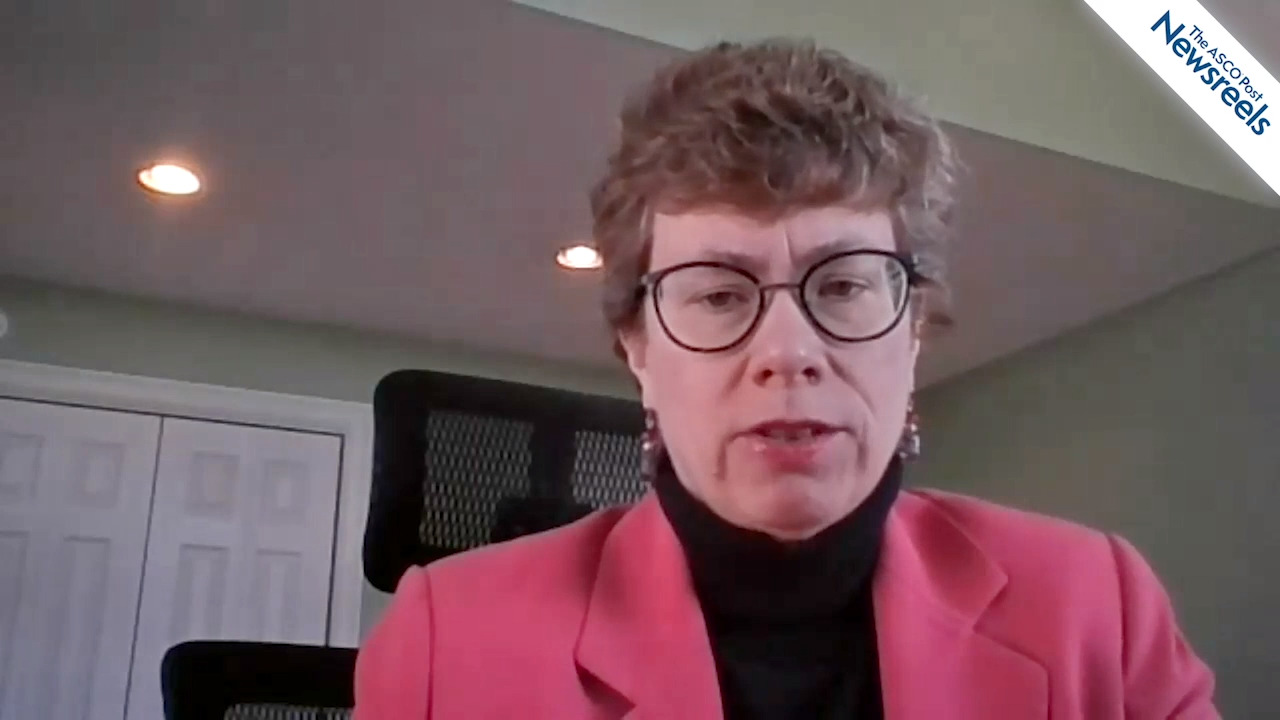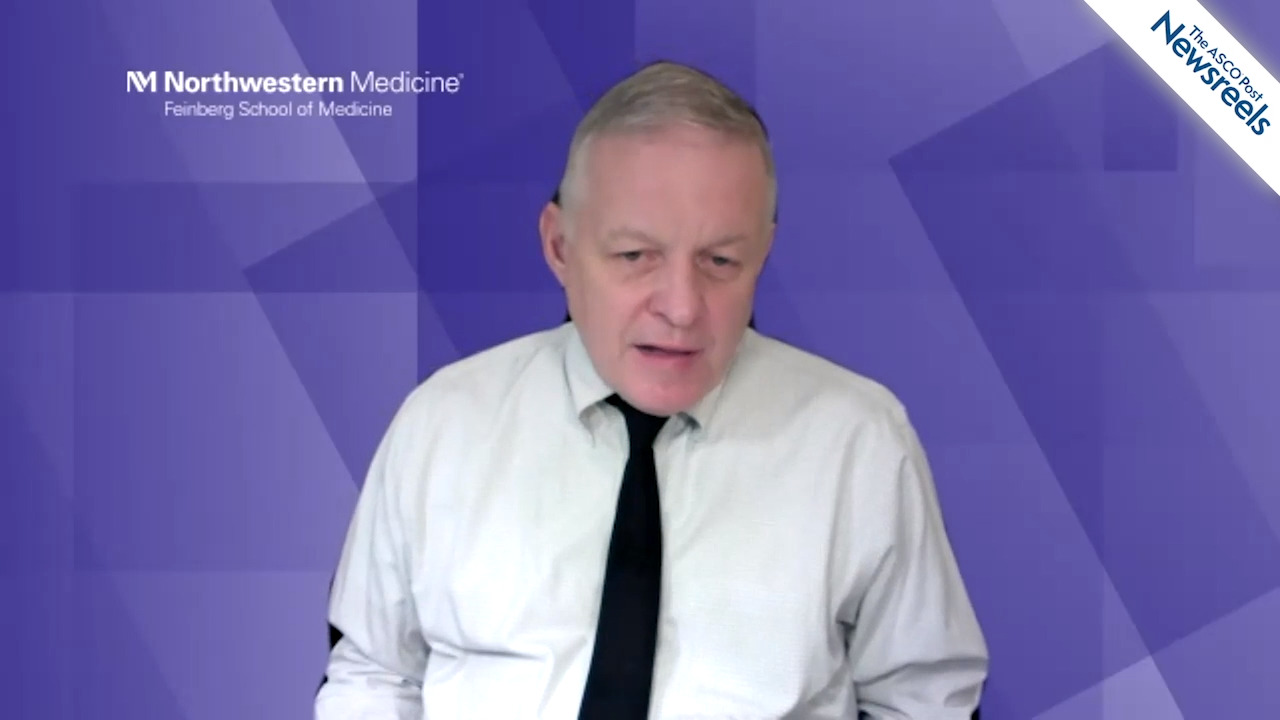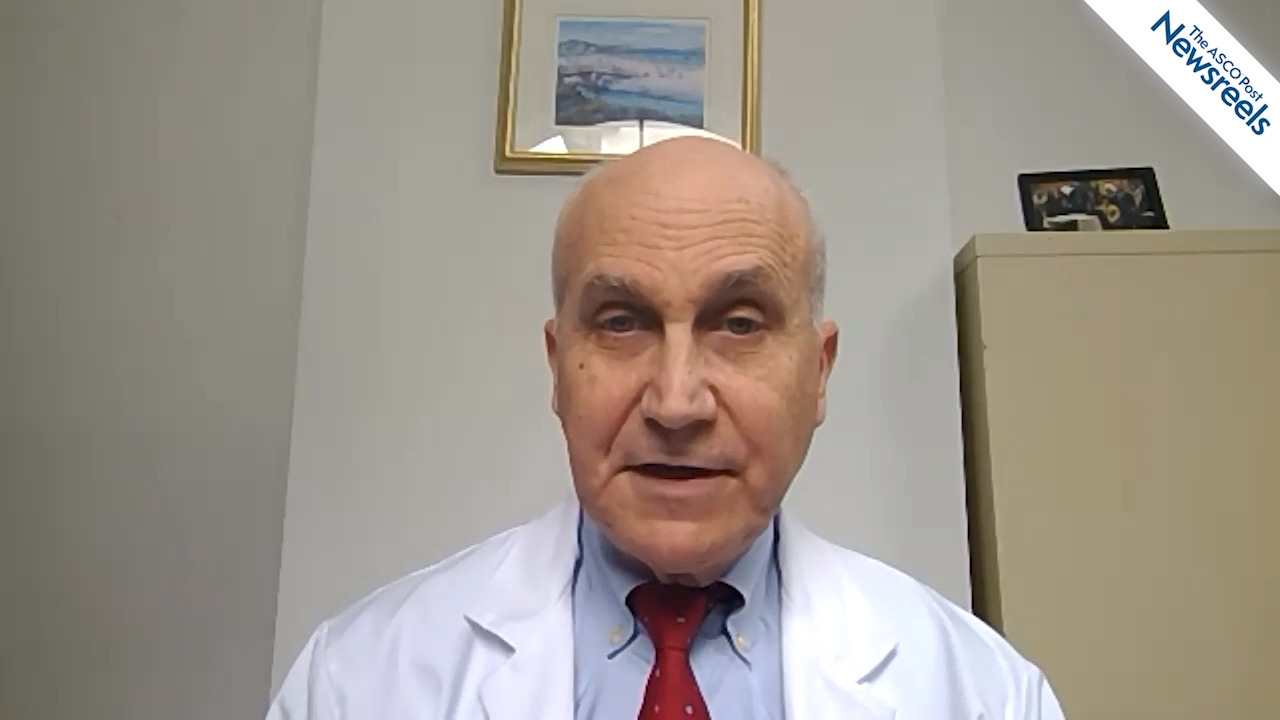Thomas K. Varghese, Jr, MD, on the Effects of the COVID-19 Pandemic on Cancer Care
NCCN 2021 Virtual Annual Conference
Thomas K. Varghese, Jr, MD, of Huntsman Cancer Institute at the University of Utah, summarizes a panel discussion on how the COVID-19 pandemic has interrupted cancer screenings, when telemedicine works and when it doesn’t, opening alternative care sites in the community, and the emotional and mental toll the coronavirus has taken on health-care providers.
The ASCO Post Staff
Robert Winn, MD, of the Virginia Commonwealth University Massey Cancer Center, discusses the creation of a health equity report card to track how institutions are dealing with disparities in oncology care, ways to recognize bias in care, and adding health equity experts to guideline panels and other advisory groups.
The ASCO Post Staff
Jennifer R. Brown, MD, PhD, of Dana-Farber Cancer Institute, discusses treatment choices for patients with relapsed or refractory CLL/SLL, when to stop therapy due to adverse events, BTK inhibitors and their second-generation counterparts, the need for ways to manage disease progression on novel drugs, and minimal residual disease as a predictor of response.
The ASCO Post Staff
William J. Gradishar, MD, of Robert H. Lurie Comprehensive Cancer Center of Northwestern University, discusses the latest recommendations from the National Comprehensive Cancer Network for treating patients with triple-negative breast cancer; data on early-stage and advanced disease; and the role of checkpoint inhibitors, antibody-drug conjugates, and PARP inhibitors.
The ASCO Post Staff
Melinda L. Telli, MD, of Stanford Cancer Institute, discusses highlights of the new NCCN Clinical Practice Guidelines in Oncology®, including nonanthracycline, taxane-based regimens as preferred treatments for patients with HER2-positive breast cancer; newly approved combination therapies such as tucatinib plus capecitabine plus trastuzumab, margetuximab plus chemotherapy, and neratinib plus capecitabine; and recommendations for third line and beyond.
The ASCO Post Staff
David G. Pfister, MD, of Memorial Sloan Kettering Cancer Center, discusses the many considerations when caring for patients with head and neck cancers, such as dental and nutritional issues; side effects from radiation, including necrosis of the bone; oral health; problems with speech; and the concerns of younger patients who may have to cope with the sequelae of treatment such as altered function or disfigurement for years to come.





